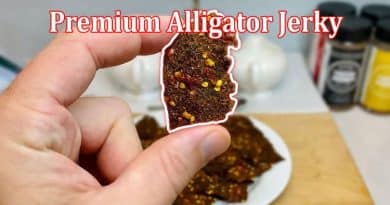5 Holistic Treatments That Can Aid Addiction Recovery
Addiction treatment is a multi-layered process with numerous facets. Whether it is the detoxification process, individual therapy, support groups, or medication-assisted treatment, the healthcare industry brings innovative treatment approaches to treat substance use disorders every day.
While conventional treatment can only treat the symptoms, holistic treatment is an approach that treats people as a whole. And when we talk about ‘whole’, we mean their physical, emotional, and spiritual well-being.
The holistic treatment creates a feeling of calm and balance in the body and mind and inspires patients to take responsibility for their well-being. A holistic approach addresses the entire person in the treatment and not just one aspect of an individual.
Though holistic therapies are not for everyone, those who want to eliminate their addiction problems will definitely see the maximum results. In this blog, we will discuss the five holistic treatments often used to augment more traditional treatment approaches.
Mindfulness Meditation
Meditation has always been around us for thousands of years. A part of an Eastern religious practice, meditation is prime to your healing process. Many healthcare professionals believe you can relax the body by relaxing the mind. And meditation works in that way. Instead of turning the brain off, meditation focuses on increasing mindfulness. According to research, 15 minutes of meditation a day helps reduce the risk of death, heart attack, and stroke by 48 per cent. It also reduces blood pressure and depression, relieves anxiety, and improves sleep quality. Also, mindfulness is based on three areas of change:
- Becoming aware of your responses and recognizing the outward cues which trigger your automatic responses.
- Training yourself to view challenging and stressful situations as growth opportunities.
- Focus on positive aspects of life.
Acupuncture
As traditional Chinese medicine says, energy flows through different pathways in the body, and when pain or inflammation arises, they block the energy flow, causing imbalance. Acupuncture is another eastern practice that helps eliminate the energy imbalance caused by substance abuse. A bulwark for addiction recovery, acupuncture is a 2000 years old technique still surviving in the healthcare industry. It is a process where thin, sterile needles are inserted into the skin at specific pressure points to restore the energy flow.
Acupuncture is also known to treat various diseases, symptoms, and conditions, such as hypertension, nausea, lower back pain, neck pain, and arthritis, and it also helps detoxify the liver. It also promotes relaxation and calms the nervous system to reduce anxiety.
Yoga
Regarding holistic therapies, yoga is a powerful and ancient form of meditation that calms the mind, relieves pain, and lifts the spirit. For addicts, yoga is an effective exercise that integrates the body, mind, and energy to restore balance in an individual. Recent studies also indicate that yoga positively impacts physical and mental well-being and is linked to positive health behaviours. In a typical yoga session, you must remain still, focus on your breathing, and feel the flow of energy inside the body.
Also, there are a myriad of benefits when it comes to yoga. A few minutes of yoga daily improves cognitive function, cultivates inner strength, confidence, and discipline, and also helps reduce cravings, prevent relapse, and quiet the mind during the addiction recovery process.
Nutritional Therapy
Substance use disorder and poor eating habits are co-related. The imbalanced nutrition can induce intense cravings for drugs and alcohol, leading to depression and anxiety. In contrast, cravings for sugar, caffeine, and nicotine can be increased in the early stages of recovery. Though caffeine and sugar are not as dangerous as alcohol and drugs, they send emotional and physical messages to the brain, which can trigger a relapse.
Proper nutrition helps reduce these cravings and enable patients to maintain sobriety for extended periods. In addition, a quality nutrition program helps people recover from substance use disorder quickly and establish healthier eating habits.
Art and Music Therapy
People with addiction issues often find it difficult to express themselves or open up to their therapist, regardless of the safe environment. For people like this, art and music therapy can be effective means of introspection and communication. Art and music therapy help people who have trouble expressing themselves verbally. This form of treatment also gives patients immense opportunities to communicate with others and helps them identify problematic issues.
Final Words
Overcoming addiction requires deep transitional work. Hence, multiple treatment options combined with holistic treatments increase the odds of success at a lasting recovery. While at first, you may not realise the importance of changing the diet or doing yoga for an hour, everything works together to form a cohesive whole. If you are still unsure about the holistic treatment approach, enquire at a rehab centre or your family therapist for more details.




